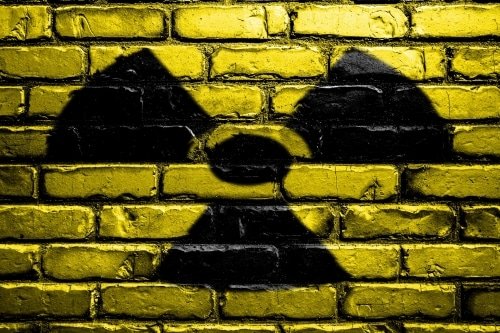Australians Should Consider Going Nuclear to Ensure a Productive Future
Australia is the world`s third-biggest supplier of Uranium and the known Uranium deposits of Australia are one of the largest in the world, almost one-third of the global Uranium deposits are estimated to be in Australia and this gives Australia immense advantage over other countries. At present all of the Uranium that is mined in Australia is exported to other countries. There is a case to be built here about investing in nuclear technology, as Australia is well-positioned for this investment.
The case for Nuclear technology
It has been well over half a century since the world first saw the raw potential of what nuclear power could do, when USA dropped two nuclear bombs over Japan. It was a gross display of pure destructive human potential.

Since then however nuclear technology has developed leaps and bound and more productive uses of nuclear technology exist with the potential to allow a country to achieve a significant pace of advancement.
Read More: Australia Must Invest in Defence Now
Japan is a prime example of this, in 1945 Japan suffered the first hand consequence of nuclear technology being used for a completely destructive purpose, any other nation on earth would have vowed to avenge it but the Japanese nation took a different path. It embraced the same technology that was used upon it for a constructive purpose and used nuclear energy to generate cheap and to a very great extent clean and sustainable electricity to power the country.
The advantage of nuclear energy is that compared with fossil fuels, a small amount of Uranium can generate a lot of energy whereas a lot of fossil fuels are required to generate a small amount of electricity and then fossil fuels also create pollution that`s harmful for the environment.
It is the efficiency ratio that gives nuclear energy a decisive edge over fossil energy. Prior to the Fukushima accident, almost 30% of Japanese energy requirement was fulfilled by the various nuclear power plants spread throughout the country and Japan was going to increase this up to 40%. The unfortunate Fukushima disaster halted these plans however it must be noted that it was only the Fukushima reactor that suffered damage as a result of the 2011 earthquake and tsunami and all other reactors in Japan were safe.
Electricity generated from nuclear power is not only cleaner but also cheaper on average and this was one of the factors that allowed Japan to attain cost advantage in producing electricity as well as economies of scale that made production cheaper for Japanese industries.
Read More: Discussion – Why Australia needs a Nuclear Deterrence

Now let`s talk about Australia. The country is estimated to have the biggest Uranium reserves in the world and at present, it is the third biggest exporter of Uranium after Canada and Kazakhistan. The fact that Australia is one of the biggest exporters of Uranium, gives it absolute and comparative cost advantage in raw material costs. Japan for instance imports all of the Uranium but if Australia had nuclear reactors then its cost of procuring raw materials would be very less.
However, the problem is that at present there are federal and state laws in Australia that prohibit the setting up of nuclear reactors or nuclear waste storage facility. Many people now feel that the time has come to revisit these laws and amend them for the greater good of the Australian society, economy and sovereignty.
Nuclear Energy in Australia

At present Australia mainly produces energy from low-cost fossil fuels. These low-cost fossil fuels have historically been the reason why the governments haven`t seriously looked into nuclear energy, as setting up a nuclear plant is costly and what`s the point when you already have low-cost fossil fuels for producing energy. However, the damage to the environment done through fossil fuels is irreparable and a paradigm shift is now occurring. Australia is one of the worst affected countries from global warming, each year wildfires destroy a considerable part of Australian forests and wildlife and a realization is not settling in that the country needs to look beyond fossil fuels for electricity generation.
Renewable sources like solar, tidal and wind energy are options but their power generation isn`t enough to power industries yet. Nuclear, therefore, remains the most feasible option.
The current energy mix for Australia is
- Coal
- Oil
- Natural gas
- Renewable
Approximately 16% of energy production is through renewable sources whereas 84% is from fossil fuels. Globally around 11% of energy production occurs through nuclear energy.
By setting up nuclear power plants, Australia can reduce the dependency on fossil fuels and move towards a more sustainable future with low cost energy that can help the manufacturing industry in the long run. .
Nuclear Weapons
There is also another case to be made here. The world is changing fast, old alliances are breaking apart and new alliances are being made. Economic prosperity is now more closely linked with military might as we can see in the case of China. After expanding the economy for a decade, China is now using aggressive military tactics to assert dominance in the region.
Read More: Why Australia needs a Nuclear Deterrence
Australia although is situated in an isolated part of the world with no land border with any other country but this doesn`t mean that there is no need to have strong deterrence capabilities. There is a saying that goes on to say that expect the best and prepare for the worst.
This is perhaps the time for Australia to prepare for the worst by investing in nuclear weapons as well. Yes, this may sound unnecessary for some as Australia has no apparent need for nuclear weapons but if we take a look at the military doctrines of nuclear-armed nations like India and Pakistan, which frequently lock horns with each other and came very close to a full-blown war in 2019, then we can see that both countries use their nuclear weapons as a form of deterrence to prevent any full-scale war with each other, as both countries know that if they go for the nuclear option then it will result in a lose-lose scenario for both sides.
Read More: North Korea nuclear weapons and its potential effect on Australia

In this case, we can see that nuclear weapons act as a deterrence and help both counties maintain peace. It is the same with USA, Russia and China. Their nuclear weapons ensure that no country gets into a serious armed conflict. The case therefore for Australia here is that if Australia attains nuclear power status, it will act as a deterrence to save guard Australian sovereignty in future.
Conclusion
Australians may not see any imminent threat as of yet but deteriorating ties with China and rapidly changing global geopolitical situation may result in a different scenario. It is therefore only prudent to think about the future now and do something about it.











